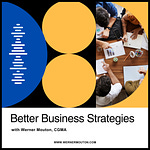10 Questions to Ask Before Starting a Business
Starting a business is a significant endeavour that requires thorough planning and introspection.
Here are ten essential questions to consider before taking the plunge:
1. What is my business idea, and what problem does it solve?
Clearly define your business idea and articulate the problem it addresses. This clarity will guide your strategy and help communicate your value proposition to potential customers and investors.
A compelling solution to a recognized problem often forms the foundation of a successful business.
For example, if your idea is an app that helps people manage their daily tasks more efficiently, identify why existing solutions are inadequate and how your app provides a superior alternative.
2. Who is my target market?
Identifying your target market is crucial for tailored marketing strategies and product development. Understand the demographics, preferences, and needs of your potential customers.
This knowledge helps create products that resonate with your audience and craft effective marketing messages.
For instance, if your product is a premium fitness tracker, your target market might include health-conscious individuals aged 25-45 who are tech-savvy and have disposable income.
3. What is my value proposition?
Your value proposition differentiates your business from competitors. It explains why customers should choose your product or service over others.
Clearly articulate what unique benefits or solutions your business offers and how they improve your customers' lives.
For instance, if you launch an eco-friendly cleaning product, your value proposition could highlight its effectiveness, safety for children and pets, and environmental benefits.
4. Who are my competitors, and what are their strengths and weaknesses?
Conduct a competitive analysis to understand the landscape you are entering. Identify your direct and indirect competitors, assess their strengths and weaknesses, and find gaps in the market.
This analysis will help you strategically position your business and leverage opportunities others might overlook.
For example, if competitors offer similar products at a higher price, you might position your business as a more affordable yet high-quality alternative.
5. What is my business model?
Decide how your business will generate revenue. Your revenue streams should be clear, whether it's through direct sales, subscriptions, advertising, or another model.
Understanding your business model will also help in financial forecasting and operational planning.
For instance, a software company might use a subscription model, offering different pricing tiers based on features and support levels.
6. What are my startup costs and financial projections?
Calculate the initial costs of starting your business, including expenses for equipment, inventory, marketing, and legal fees.
Develop financial projections to estimate future revenue, expenses, and profitability.
This financial planning is essential for securing funding and managing cash flow.
For example, a café startup might include costs for renting a space, purchasing equipment, initial inventory, and marketing campaigns in its startup budget.
7. How will I finance my business?
Determine your sources of funding. These could include personal savings, loans, investors, or grants. Each option has advantages and implications, so consider what best aligns with your business needs and growth plans.
Having a clear financing strategy is crucial for sustaining your business through its early stages.
For instance, a tech startup might seek venture capital funding to scale quickly, while a small retail store might rely on a bank loan and personal savings.
8. What legal structure is best for my business?
Choose a legal structure that suits your business needs, whether a sole proprietorship, partnership, corporation, or LLC.
Each structure has different legal and tax implications, so it's essential to understand them and consult a legal expert to make the best choice.
For example, an LLC might offer personal liability protection and tax advantages beneficial for a small business owner.
9. What are the key risks and challenges, and how will I mitigate them?
Identify potential business risks and challenges, such as market competition, regulatory changes, or economic downturns.
Develop strategies to mitigate these risks, including contingency plans and insurance coverage. Being proactive about risk management can safeguard your business against unforeseen challenges.
For instance, diversifying your supplier base can reduce the risk of supply chain disruptions.
10. What is my exit strategy?
Consider your long-term goals and how you plan to exit the business eventually. Whether you aim to sell the business, go public, or pass it on to a successor, having an exit strategy helps make strategic decisions that align with your end goals.
Conclusion
By thoroughly addressing these questions, you can build a strong foundation for your business and increase your chances of long-term success.
Each question helps you delve deeper into different aspects of your business plan, ensuring you are well-prepared to launch and grow your venture.








Episode 11: 10 Questions to Ask And Answer Before Starting a Business